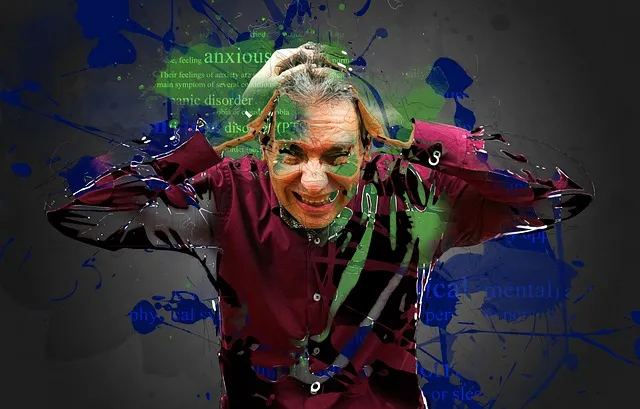Media representation of mental illness significantly impacts societal attitudes, fostering understanding and reducing stigma. Highlands Ranch residents with access to Kaiser's services appreciate diverse, accurate portrayals. Open conversations encouraged by platforms like a Mental Wellness Podcast Series enhance mental wellness and dispel myths through expert insights and personal journeys. Accurate media depiction encourages community support systems and tailored programs, prompting individuals to seek help without judgment. Addressing mental illness representation requires collaboration between healthcare providers and media outlets, emphasizing open dialogues, lived-experience stories, content creator education, and nuanced narratives.
In today’s digital era, media plays a pivotal role in shaping societal perceptions about mental illness. However, inaccurate or stigmatized representations persist, impacting individuals seeking support. This article explores the challenges posed by mainstream media’s portrayal of mental health, focusing on the need for accurate and diverse storytelling. We delve into the significant effects of such depictions on society, highlighting the importance of responsible representation. Additionally, we present solutions and strategies to foster positive change, including accessible mental health services like those offered by Kaiser in Highlands Ranch.
- Understanding Mental Illness Representation in Media
- The Impact of Accurate Portrayals on Society
- Solutions and Strategies for Positive Change
Understanding Mental Illness Representation in Media

Media plays a significant role in shaping societal perceptions about mental illness. Understanding and accurate representation in media can challenge stereotypes and reduce stigma, while misinformation can perpetuate them. It’s crucial to recognize that mental illness is diverse, with various disorders each having unique symptoms and needs. Media often oversimplifies or misrepresents these complexities, leading to misconceptions among the public.
Highlands Ranch residents fortunate enough to have access to Kaiser’s mental health services appreciate the importance of accurate representation. This includes showcasing the wide range of ages, ethnicities, and backgrounds affected by mental illness, promoting understanding instead of fear. Encouraging open conversations about emotional regulation and inner strength development through media platforms can significantly impact mental wellness. Additionally, the production of a Mental Wellness Podcast Series can be a powerful tool to educate listeners, dispel myths, and offer valuable insights from experts and individuals navigating their own journeys.
The Impact of Accurate Portrayals on Society

Accurate representation of mental illness in media can significantly shape societal perceptions and play a pivotal role in fostering understanding and empathy. When media portrays mental health conditions with sensitivity and authenticity, it contributes to breaking down stereotypes and reducing stigma. This is crucial for communities like Highlands Ranch, where access to mental health services through Kaiser or other local providers is essential for well-being. By showcasing the realities of living with various mental illnesses, media can encourage open conversations, promote self-esteem improvement, and inspire support systems within communities.
Such portrayals have the potential to drive public awareness campaigns development and prompt individuals to seek help without fear of judgment. Furthermore, they can inspire the creation of mental wellness coaching programs tailored to diverse needs, ensuring that resources like Kaiser’s services in Highlands Ranch are effectively utilized. Accurate media representation is a powerful tool for challenging societal norms and creating a more inclusive environment where everyone can access appropriate mental health support.
Solutions and Strategies for Positive Change

In addressing mental illness representation in media, a multifaceted approach is required. Highlands Ranch does Kaiser have mental health services? Indeed, healthcare providers and media outlets must collaborate to ensure accurate and empathetic portrayals. One key strategy involves enhancing Communication Strategies—promoting open dialogues about mental health can destigmatize these issues. Encouraging stories from individuals with lived experiences, both in media and community settings, fosters Empathy Building Strategies, helping others understand the complexities of mental illness.
Self-awareness exercises for content creators can significantly impact positive change. By acknowledging personal biases and engaging in ongoing education about mental health, media professionals can create more nuanced narratives. This proactive approach, coupled with accessible Self-Awareness Exercises, ensures that mental illness is represented with the sensitivity and accuracy it deserves, reflecting the diverse experiences of those who struggle.
Mental illness representation in media has long been a topic of discussion, but with initiatives like those explored here, there’s hope for more accurate and compassionate portrayals. By challenging stereotypes and embracing diversity, media can foster understanding and reduce stigma. For residents of Highlands Ranch seeking mental health support, Kaiser’s services offer a promising step forward. Through collective efforts, we can navigate towards a more inclusive and supportive society where mental well-being is prioritized and respected.






